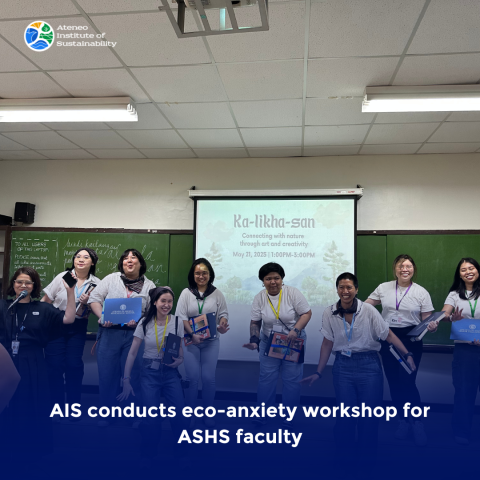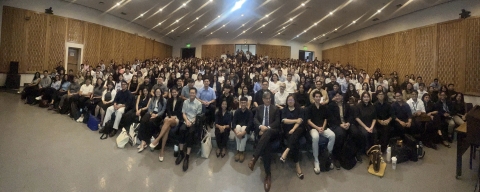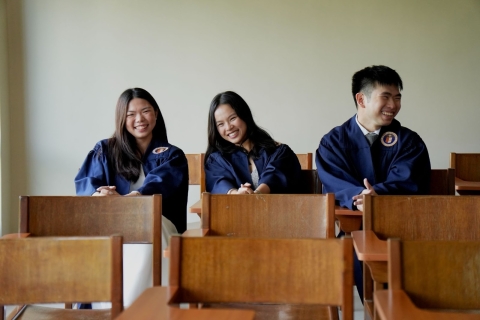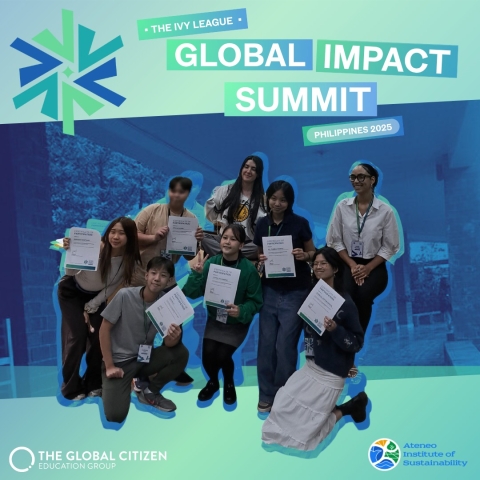Refracting Ignatian Pedagogy: How Ignatian educators are learning a new approach to the IPP
20 Jun 2024
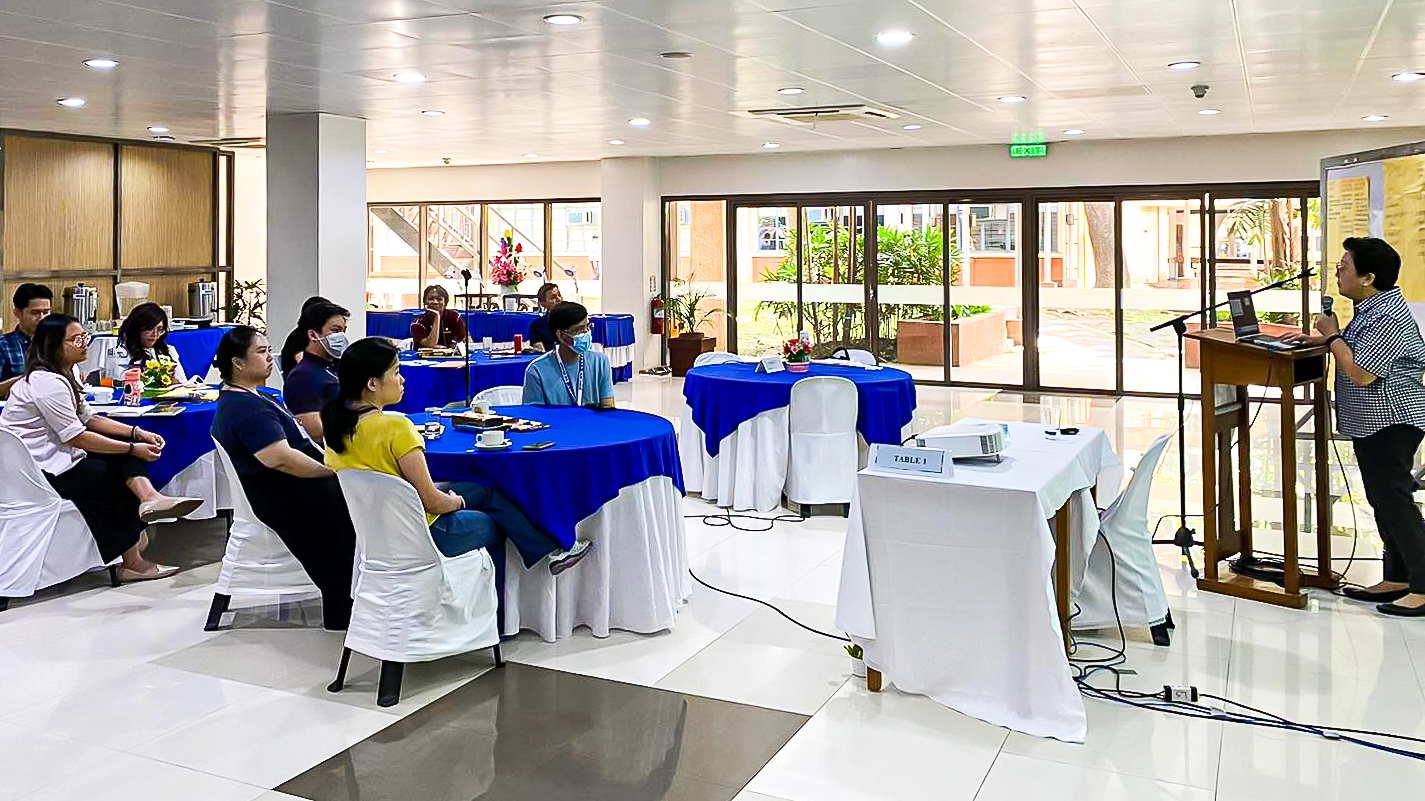
Five years after its publication, Fr Johnny Go SJ and Rita Atienza’s book on Ignatian Pedagogy, Learning by Refraction, has been translated into six languages—Spanish, Brazilian Portuguese, Thai, Chinese, Polish, and Dutch—with four more editions in the works. Since then, the two authors, under the auspices of IGNITE (Ignatian Institute for Teacher Excellence), have likewise offered both online and onsite training to over two thousand educators of Jesuit schools not only in the Philippines, but around the world.
“Actually, the response to the book really caught us by surprise,” said Fr Johnny, Dean of Ateneo de Manila University’s Gokongwei Brothers School of Education and Learning Design (GBSEALD). “All we set out to do was to provide some tips to our teachers in Asia Pacific on how to use Ignatian Pedagogy in a way that would actually improve their teaching, but it seems that many are looking precisely for a concrete and practical guide, which is exactly what we’ve hoped our book would be.”
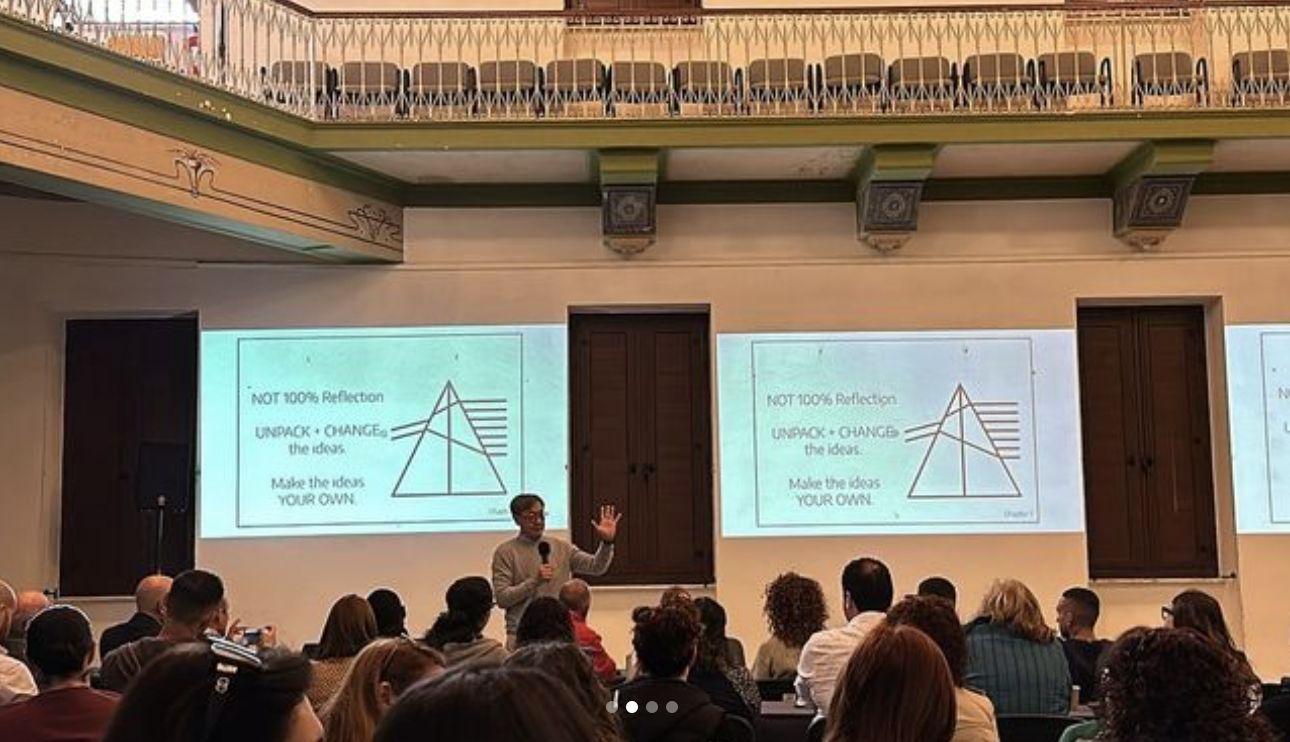
At the time of the book’s writing, Fr Johnny also served as the Education Delegate of the Jesuit Conference of Asia Pacific (JCAP) and received much-needed encouragement from the JCAP President then, Fr Tony Moreno SJ, and the Education Secretary of the Society of Jesus, Fr Jose Alberto Mesa, SJ.
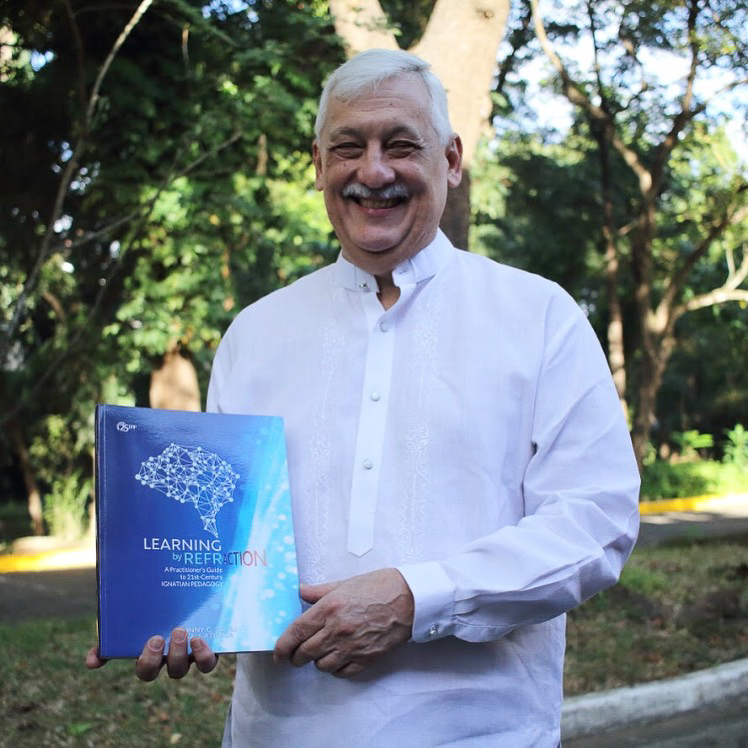
His co-author, Rita Atienza, currently the Director of the Ateneo Teacher Center (ATC), recalls how the idea of a practical manual on Ignatian Pedagogy first emerged. In 2009, Fr Johnny was both President of Xavier School in Manila and the Chair of the Jesuit Basic Education Commission (JBEC), the network of K-12 Jesuit schools in the Philippines when he invited Rita to speak at the network conference. Over lunch, they discussed how educators needed urgently to reimagine their work in education so that they could better prepare students for the real world. But they also agreed that a partial solution to this problem was already available to Jesuit schools in the teaching toolkit of Jesuit education—the IPP, especially its two elements of Reflection and Action. More than ever, the principles of the IPP—first articulated in the seminal publication, Ignatian Pedagogy: A Practical Approach (1993)—remained relevant, but it needed to be re-articulated in the language and best practices of the age.
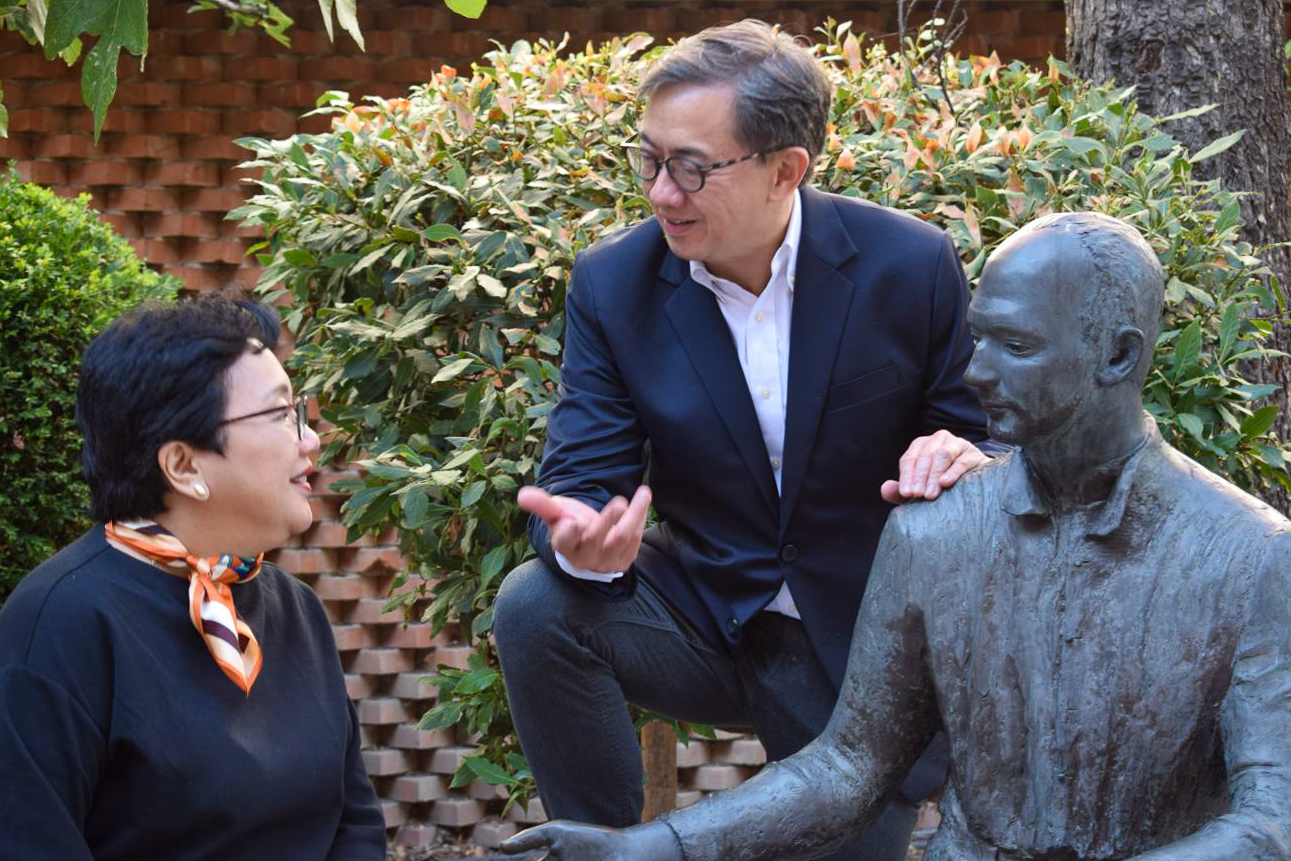
And that was exactly what Fr Johnny and Rita set out to do: To find a new and more concrete approach to Ignatian Pedagogy that would impact the learning and teaching in our classrooms.
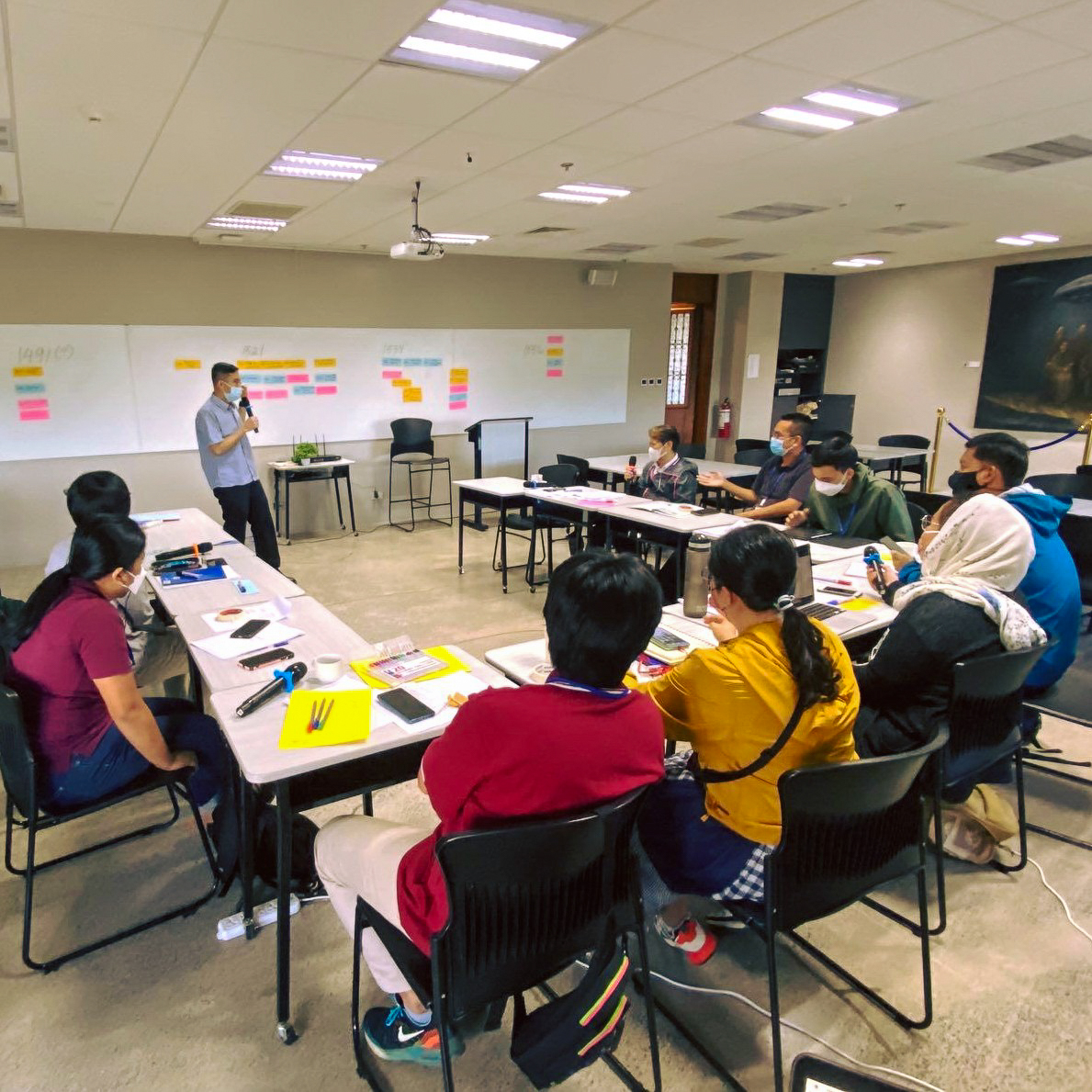
The title “Learning by Refraction” comes from two metaphors that the authors employ in describing the kind of learning that we want to promote in our classrooms: “Refraction” refers to the bending of light and sound when they go through a medium, as well as the measurement of vision. The Ignatian brand of learning is one that is defined by the learners’ personal appropriation of the content (not simply parroting teachers or textbooks), as well as the trial-and-error process—similar to what happens in the eye doctor’s clinic—that learners need to go through to reach understanding and mastery.
The actual writing of the book began in 2011. When Fr Johnny left for London two years later to finish writing his doctoral thesis, the collaboration between them continued online. Upon his return to the Philippines in 2015, the project was pursued in earnest until Learning by Refraction: A Practitioner’s Guide to 21st Century Ignatian Pedagogy was finally published in 2018 in time for the 25th anniversary of the IPP.
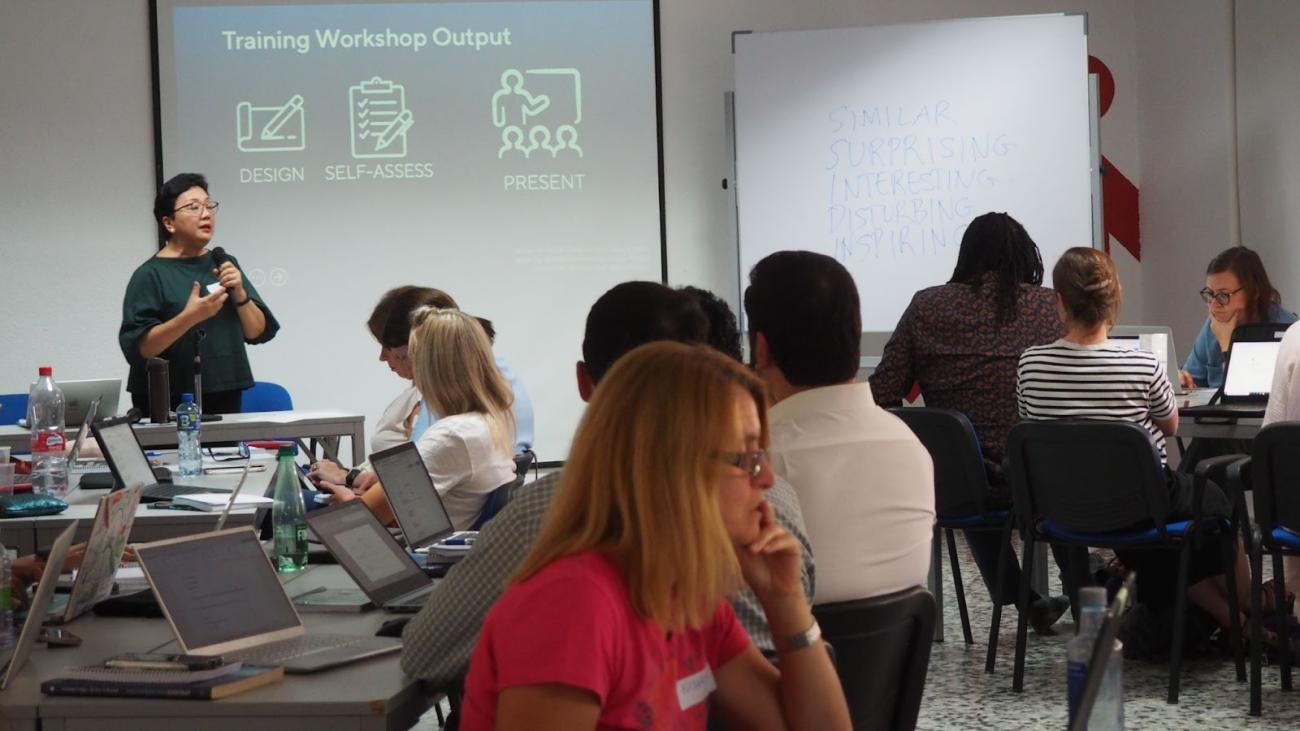
Looking back at the seven years it took them to finish writing the book, Rita Atienza had this to say:
The work was really enriched by the long journey we had to take: We both continued our work conducting training and consultations with Jesuit and non-Jesuit schools in the Philippines and internationally, and amassed a wealth of information from these teachers. This is what we mean when we say that the book is borne out of our conversations with educator-practitioners—looking closely at best practices, challenges, questions of those teachers in the trenches, so to speak, those who spend each day working in the frontlines with students, parents, fellow teachers, and administrators. These conversations continue to take place to this day through the workshops we conduct for Ignatian educators in different parts of the world as organized by the different Jesuit K-12 school networks worldwide.
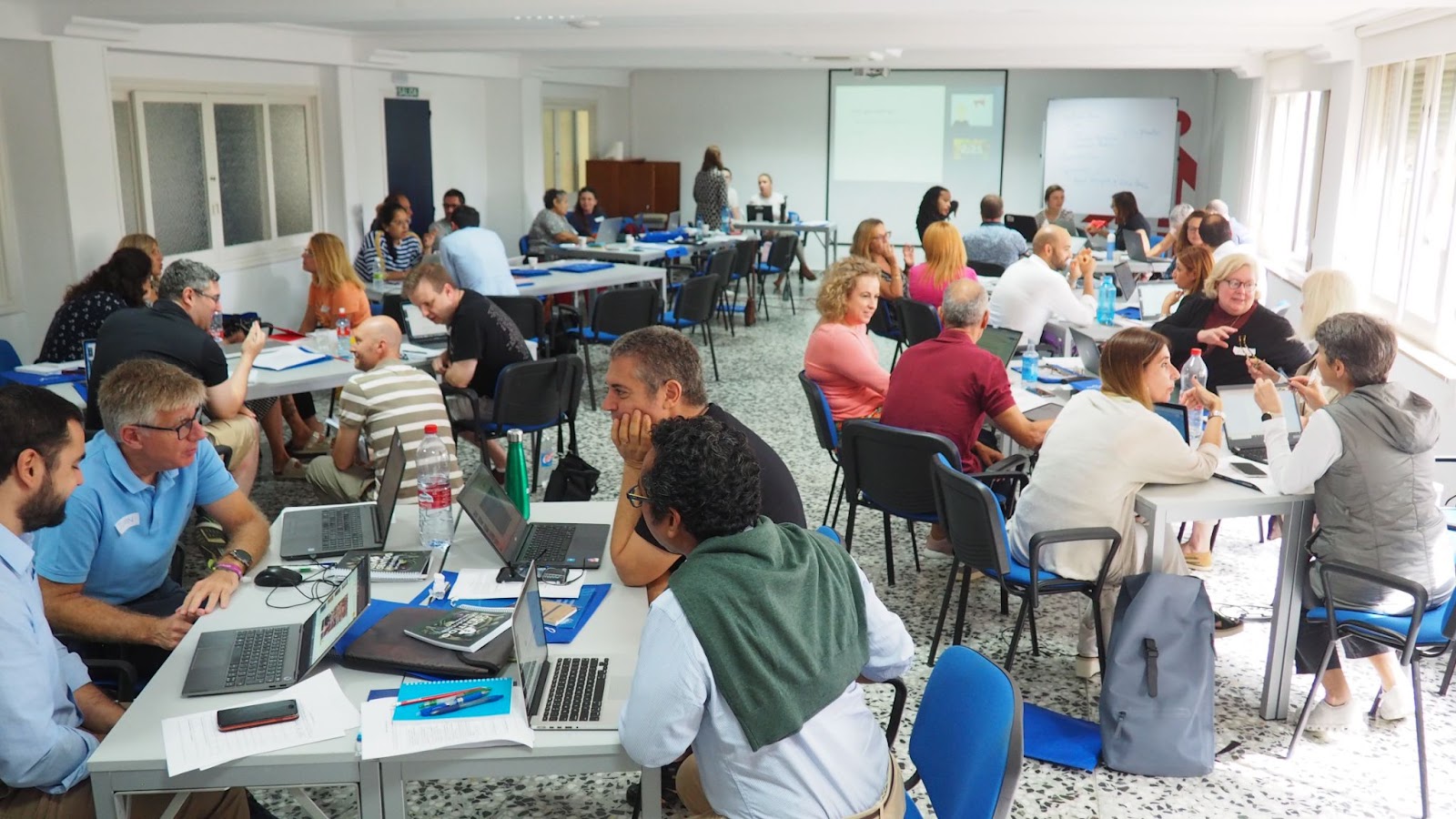
The first Learning by Refraction training was held in Chiang Mai, Thailand in September 2018. Right before the pandemic, three successive workshops were conducted in the same place in Chiang Mai (January 2020), in Dublin, and in Sydney (both in February 2020). Not deterred by the lockdown, an online MasterClass via Educate Magis was offered early next year for the Jesuit Schools Network (North America), Jesuit Education Australia, and the Jesuit European Commission for Secondary Education (JECSE).
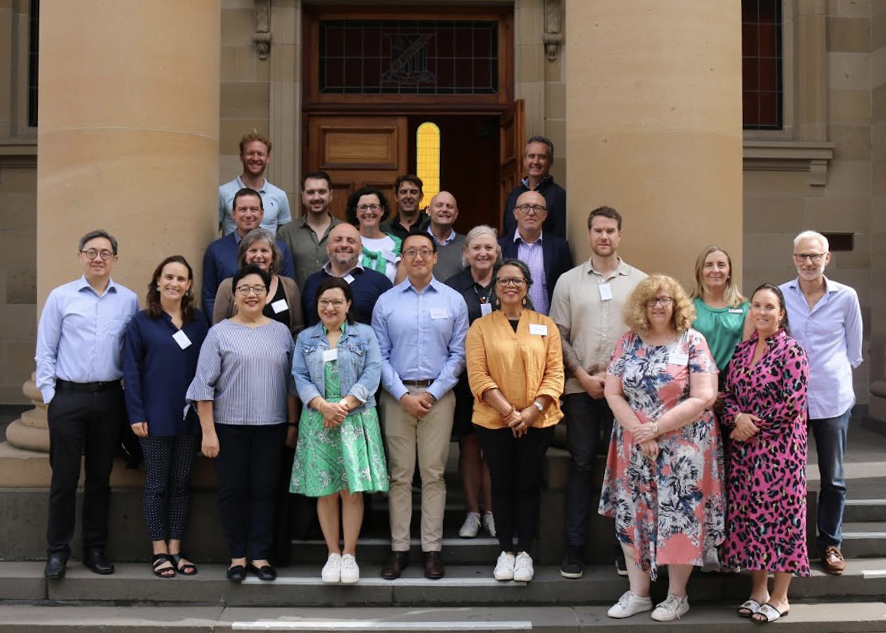
As soon as the lockdowns were lifted, a hybrid Learning by Refraction course was offered in October 2021 in Barcelona, but it was not until the next year that a fully onsite Trainers’ Training Lab was held in Alicante, Spain.
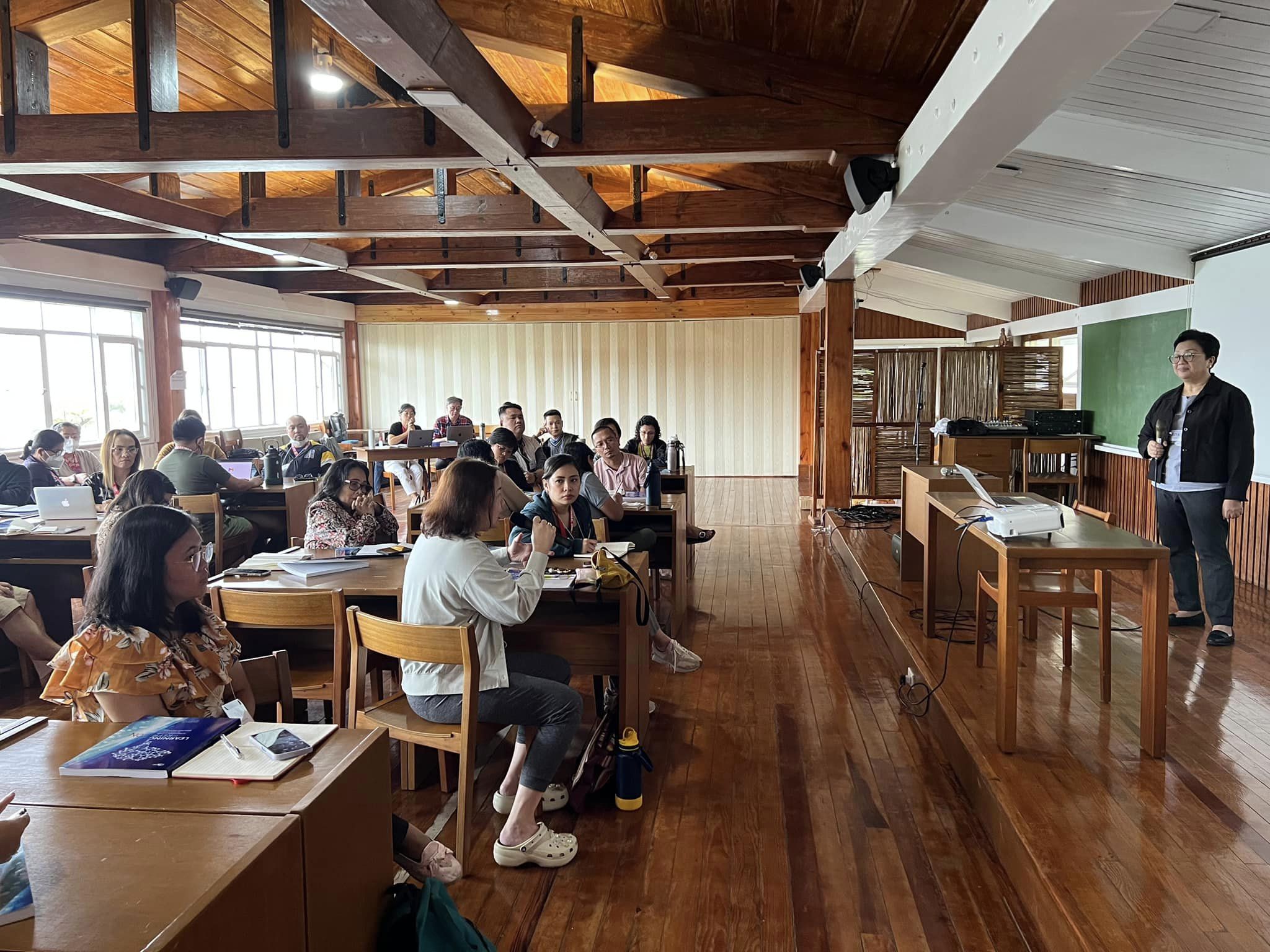
The Spanish network (EDUCSI) gathered its pedagogical leaders and school heads for a couple of sessions that same month. The next year, a similar Trainers’ Training Lab was organized by the JEA for our colleagues in Adelaide and Melbourne in October, followed by one organized by the Jesuit Basic Education Commission (JBEC) in Baguio, Philippines that same month.
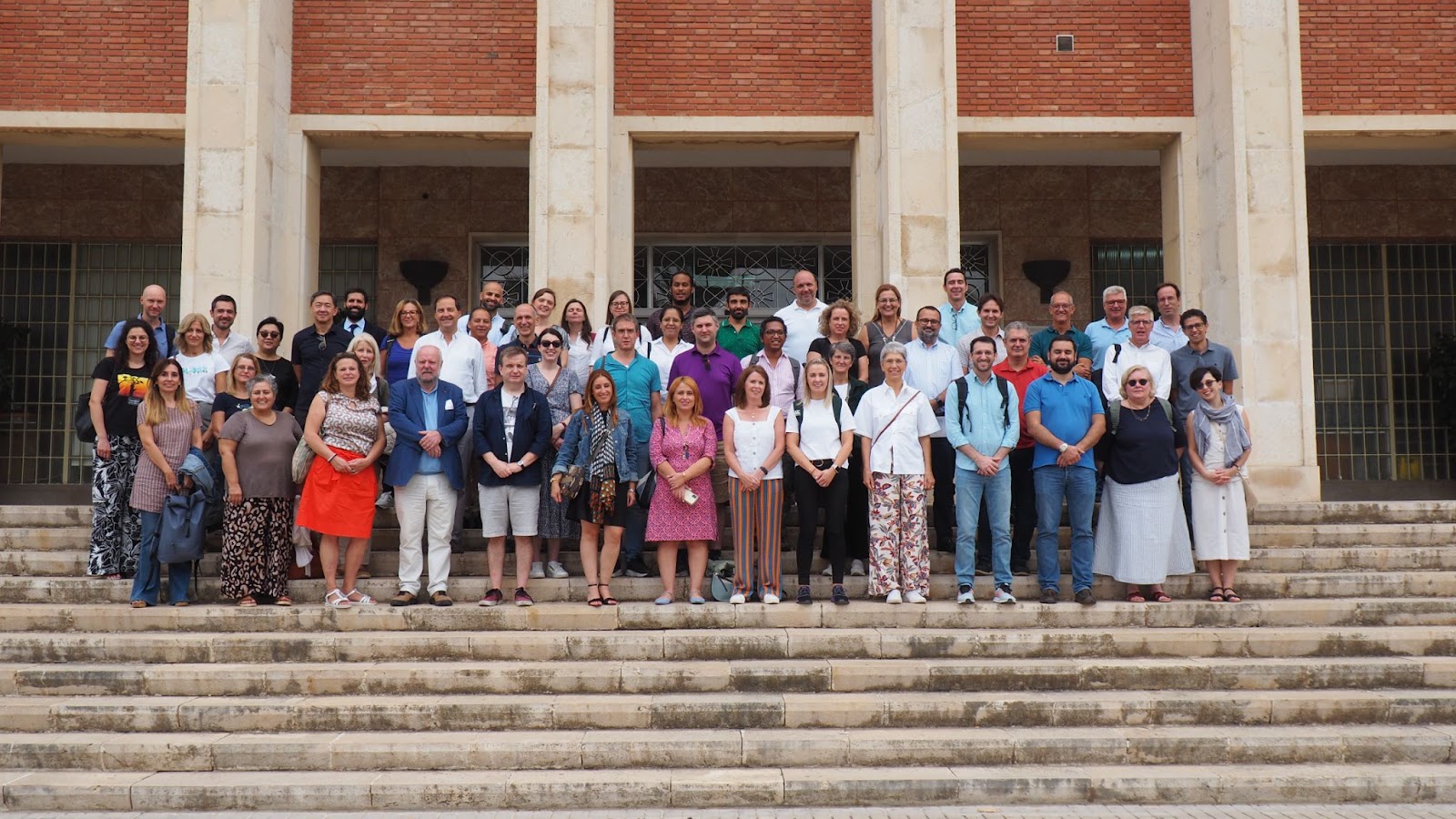
At the JECSE workshop for school leaders last October 10, 2023, Yolanda Baquero-Lopez of JECSE described Learning by Refraction as “a tool for mission,” providing a practical and systematic way, in line with 21st-century best practices, to design learning experiences that “prepare students for the real world with an Ignatian perspective.”
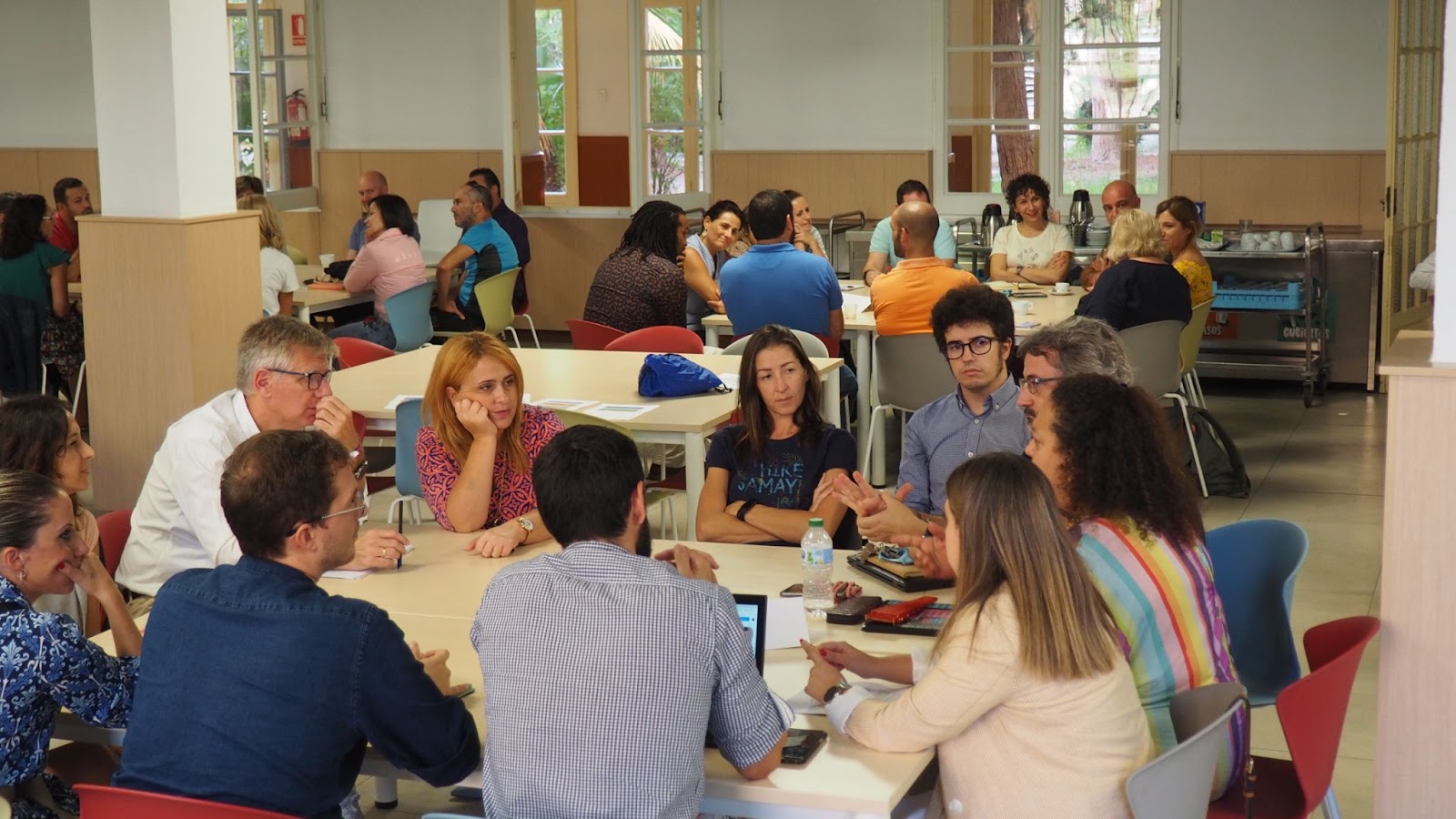
The Ignatian Initiative for Teacher Excellence (IGNITE) of the Ateneo de Manila University continues to receive requests for both online MasterClasses and onsite training, including West Africa as well as non-Jesuit schools in Thailand and the United Kingdom. Fr Johnny and Rita regard their work of sharing Learning by Refraction as a contribution to the Society’s continuing effort to improve the practice of Ignatian Pedagogy. For them, the best way forward is to continue to offer Ignatian educators provocations to reflect on their practice and to find time to converse with one another on how the five IPP elements can be used not only to promote deeper learning, but also, in the spirit of the mission of Jesuit education to form persons for and with others in today’s world.
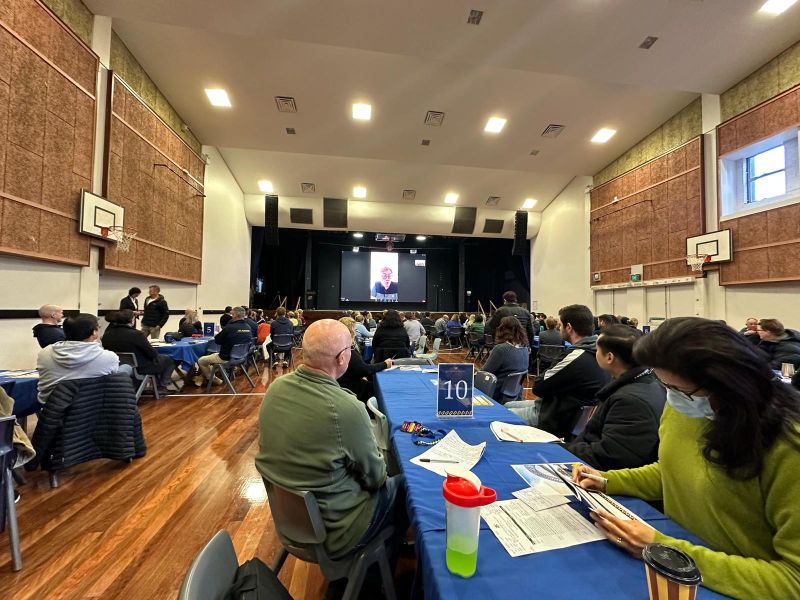
A resource website for Learning by Refraction is available courtesy of IGNITE at jcapedu.org/ignite.


